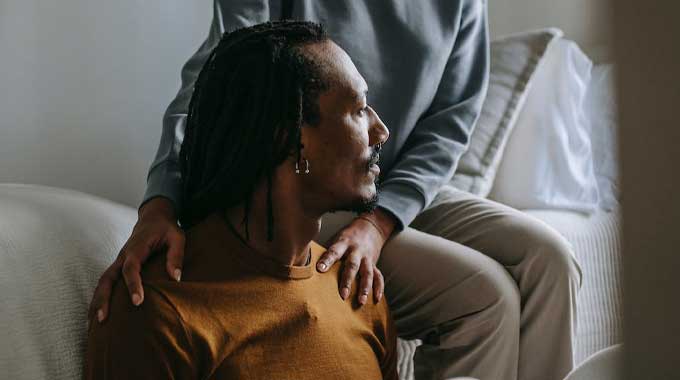Prescription drug addiction is distinct from other drug addictions because the substances are legal and often prescribed by a doctor to treat medical or psychological conditions. While medication can be a valuable part of treatment for insomnia, chronic pain, anxiety, or other common issues, addiction can develop when a patient takes the drugs recreationally or becomes dependent over the course of a prescription. Eventually, a person may become physically and psychologically reliant on their prescription drugs to function normally in daily life.
In Orange County, as in many parts of the US, the most commonly abused prescription drugs are opioids (like Oxycontin and Percocet), sedative-hypnotics (such as benzodiazepines and Xanax), and stimulants (including Adderall or Vyvanse). These medications are prescribed by medical professionals as a temporary way to alleviate pain from injury or surgery, or to treat various psychological or medical conditions. For patients prone to addiction, these substances can provide euphoria and tranquility, leading to dependence.
Regardless of the type of prescription medication, someone is addicted to, the chronic use or abuse of these drugs can cause serious damage to every aspect of a person’s life. Despite being legal, consequences for prescription drug addiction can escalate and become just as critical and life-threatening as any street drug.
At Cornerstone, we believe that no matter how deep into prescription drug addiction you are, it’s never too late for recovery. We can provide the help you need. Our highly trained and dedicated psychiatrists, psychologists, and therapists are ready to help you overcome your addiction.
Free Prescription Drug Addiction Assessment & Treatment Planning
At Cornerstone we offer a free addiction assessment. This benefits the patient and ultimately their treatment in a few ways:
- Provides a non judgmental and confidential space to openly discuss the addiction.
- Gives mental and medical context to our treatment professionals as to how the addiction started and subsequently progressed.
- Allows an opportunity to dispel uncertainty or answer questions a patient has about treatment itself.
- If a patient moves forward with treatment, it jumpstarts our mutual planning making the process smooth and efficient.
If you or someone you love are suffering from prescription drug addiction, Cornerstone can offer a free initial assessment that can start your road to recovery. With no cost and no commitment, it’s a great relief to many of our potential patients to discuss their experiences and concerns with our experienced addiction counselors.
Prescription Drug Addiction Detox
Because sudden withdrawal from prescription drugs can cause severe health complications and can be fatal, the first step in treatment is to assess the health implications of detox. After reviewing the medical history, depth, and duration of drug use, our doctors and nurses start the addiction treatment program with a medically assisted detox at our rehabilitation center.
The detox process can last a few days depending on a patient’s condition. Regardless of the length of withdrawal, the detoxification process is assisted and overseen by our medical professionals who are available for assistance around the clock, ensuring you are as safe and comfortable as possible.
During detoxification from certain prescription drugs, it may be necessary for medical staff to provide medications that alleviate severe withdrawal symptoms. Most commonly, methadone and buprenorphine can be used to treat opioid withdrawal symptoms and buspirone and Flumazenil can be used for benzodiazepine detox. Each of these drugs can help in coping with the physical and psychological distress that prescription drug withdrawal can bring.
Our Team and Environment are Dedicated to Recovery
The team at Cornerstone is comprised of a variety of disciplines, each bringing their own set of expertise and experiences. This allows our drug treatment specialists to provide treatment that is personalized, flexible, and most of all safe. We create a secure, non-judgmental space to support you through your treatment – addressing the core challenges and motivations that will help guide you through your recovery.
We provide a variety of therapeutic methods used to customize a unique treatment program that mixes the best treatment options available. Building self-esteem and achieving goals throughout your treatment provides the foundation for long-lasting recovery from prescription drug addiction.
Cornerstone’s addiction counselors place the patient at the center of our treatment plans by giving patients full transparency in the stages of their recovery process. Our skilled staff has the experience to know that addiction is not a uniform condition and therefore treating the underlying cause of addiction must be prioritized.
Seek Help for Your Prescription Drug Addiction
The consequences of habitual use stack up over time and psychological and physical harm is compounded as the addiction continues. These negative consequences and harm often push an addict further into addiction as they will seek stronger or cheaper (and more dangerous) substances to achieve a satisfactory high.
Left untreated, prescription opioid, benzodiazepine, and Adderall addictions fester and can have long-lasting effects on a person’s life. As one’s addiction fully manifests, personal, professional, and romantic relationships become strained. Furthermore, their risk of developing a secondary addiction (such as alcoholism), psychological neurosis, behavioral issues, and antisocial attitudes increases over time.
Find help: Drug Rehab Center in Orange County
Regardless of how far prescription drug abuse has progressed, Cornerstone believes that treatment and recovery are possible at any stage of addiction. We provide our patients with the help they need to overcome addiction.
Prescription Drug Addiction Treatment at Cornerstone of Southern California
For most patients, their prescription drug addiction treatment begins with an intensive inpatient program. The program starts with our team of addiction specialists assessing your condition and working with you to develop a plan forward. The duration of your stay, the pace of your treatment, and the goals set are all determined by you and our team based on the severity and nature of your addiction.
This transparency and flexibility allows Cornerstone to work with patients in various ways that are always client-centered. Accordingly, we offer other options for treatment if the residential program isn’t optimal for a patient seeking help. Other options include our day treatment and outpatient program that allow patients to be treated at the times and manner most effective for them.
Our treatment program is built on the 12-step addiction model. This treatment methodology uses a mix of empirical evidence, decades of experience, and clinical guidelines to make it an effective, patient-centered approach to abstinence. Cornerstone helps patients juxtapose their motivation for recovery with a set of guiding values and beliefs. We challenge addictive and toxic behaviors and thought processes that fuel the addiction itself while underpinning our treatment process with both humility and self-worth.
What Types of Prescription Drug Addictions are Treated at Cornerstone of Southern California?
While there is a vast variety of prescription medications that can be addictive, the most common substances that people suffer from are the following;
- Prescription opioids – including oxycodone (Oxycontin and Percocet), hydrocodone (Vicodin), fentanyl, codeine, tramadol, and Co-codamol
- Prescription benzodiazepines (also known as tranquilizers or sedatives) – including diazepam (Valium), alprazolam (Xanax), Chlordiazepoxide (Librium), and Zolpidem (Ambien)
- Prescription stimulants – including methylphenidate (Ritalin and Concerta) and dextroamphetamine (Dexedrine and Adderall)
Signs and Symptoms of Prescription Drug Addiction
Indicators that someone is struggling with a prescription drug addiction will vary depending on the severity of the addiction and what sort of prescription drug is being abused. Opioids, sedative-hypnotics, and stimulants all have their own unique addiction profile. Symptoms of prescription drug addiction will also vary from person to person depending on their environment and personality. However, there are some general signs you can be aware of that can suggest you or a loved one is addicted to prescription drugs, for example;
- Feeling a need to consume the prescription drug more often, and in larger quantities due to an increased tolerance to the drug and/or in order to experience the same feelings as the earlier stages of taking the drug.
- Using prescription medication more regularly than advised by a medical professional.
- Ordering prescription medication online, rather than going to see a doctor.
- Requesting medication from several different doctors for the same ailment or repeatedly requesting more medication against the medical professionals’ judgment.
- Stealing other people’s prescriptions, pretending to lose, or creating counterfeit prescriptions.
- Experiencing negative consequences of the drug, on your work, home, or social life but persisting prescription drug use.
- Feeling extreme cravings for the drug.
- Finding that your mood is dependent on the availability of prescription drugs; when you are without the drug feeling chronically anxious, depressed, or short-tempered.
- Experiencing withdrawal symptoms when you attempt to stop taking the drug, or when it is not available.
Self-Help Pointers for Dealing with the Initial Stages of Prescription Drug Addiction
It can be difficult to know where to begin when seeking recovery; below are some useful suggestions to support the early stages of prescription drug addiction;
- Be open and honest with people you love about the number of drugs you take, and how often.
- Accept that your drug use has become problematic and you are no longer in control of how much or how often you take drugs.
- Make initial changes in your life to avoid negative influences and people that have historically enabled or triggered drug use.
- Begin to prepare to make significant changes in order to engage in treatment and maintain recovery from addiction.
- Accept that the process of change is challenging and requires motivation and dedication.
Crisis Care
Cornerstone’s customer service team is available 24 hours a day, 7 days a week, delivering excellent, prompt support to those in crisis. Contact us immediately.









